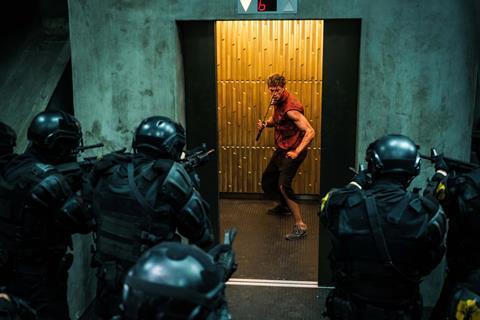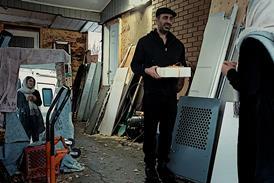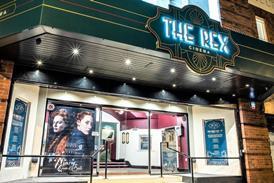South Africa is hoping to entice even more international production partners with its wide range of benefits, both financial and creative.

There are several key reasons why international productions head to South Africa — and they are not just to do with the picturesque locations Tom Cruise called “stunning” after shooting scenes for the next Mission: Impossible film.
Strong financial support is one. The Foreign Film and Television Production and Post-Production Incentive is worth 25% of qualifying spend — with an extra 5% available when a production uses a Black-owned production company. The rate for official co-productions is 35%, with an extra 5% available when 20% of Black South African citizens are hired as heads of department.
The second big draw is the country’s studio facilities, which are fast expanding. Then there is the crew base, burgeoning post-production sector, favourable exchange rate and warm weather.
“We have just celebrated 30 years of democracy. As a country, we are in a celebratory mood,” says Yolanda Ncokotwana, head of department for industry development at the National Film and Video Foundation (NFVF). “But it is also about looking forward and asking where we want to be in the next 30 years. We want to be a proper global player when it comes to [film and TV] content. We want our content to be consumed everywhere.”
Lure of Cape Town
Cape Town has been particularly successful in attracting productions, with the Film Permits Office of Cape Town issuing 3,900 permits between July 2022 and July 2023, a sign of the heightened levels of activity. The city is also home to leading animation studio Triggerfish, and provided the locations for Nthibah Pictures’ martial-arts thriller Boy Kills World, one of the biggest-budget South African pictures ever made, standing in for US backdrops.

Johannesburg, meanwhile, was the setting for Netflix crime drama Kings Of Jo’burg, while other cities — notably Durban — also have a long history of production.
Co-production is ramping up too. South Africa has a string of co-production treaties with France, Germany, the UK, Canada, Ireland and the Netherlands, among others.
“[Treaties] make it easier for producers to interact and share experiences and, most importantly, work on projects together,” says Jimmy Ranamane, general manager: global markets at Brand South Africa, the official marketing agency of South Africa.
Agencies such as the KwaZulu-Natal Film Commission and Gauteng Film Commission are busy promoting South Africa as a destination for international film production, while the Industrial Development Corporation of South Africa is also investing in the entertainment industry.
To mark a memorandum of understanding between Spcine (Sao Paulo in Brazil) and NFVF, Brazilian producer Elias Ribeiro and South African filmmaker Kurt Orderson will give a talk in Cannes during a special case study event organised through the Marché’s Producers Network.
Ncokotwana says South Africa will be courting further international partners in Cannes. NFVF is at the festival with a delegation of around 15 producers, and several new projects. Among these, South African hip-hop documentary Notes From The Underground, directed by Chris Kets and Adrian Van Wyk, is being spotlighted as a work in progress during Cannes Docs. The film, made through Azania Rizing Productions, is in post-production.
Service producers will also be in town, as will indie producers hoping to put together co-productions. Later in the summer, NFVF will be taking a “big delegation” to Annecy to promote South African animation with potential partners.
“Last year was saying, ‘We are back,’” says Ncokotwana. “This year is saying, ‘We are open for business.’ South African producers are professionals you can trust and rely on, and who will see through a project with you.”
The South African film industry employs an estimated 20,500 people while the cultural economy accounts for 6.72% of jobs in the country, a figure higher than the mining sector. This explains why so much public attention is being paid to expanding the film and TV sector.
There are now strong skills training initiatives, including the Leaders in Motion Academy, a digital creative skills academy targeting young talent from disadvantaged backgrounds.
While insiders acknowledge Covid left “a dent” in the production sector, one positive from the pandemic, according to Ranamane, was that “it accelerated the entry of streamers in the country”, with local producers benefiting from their presence.
Netflix’s South African thriller Heart Of The Hunter premiered on the platform in late March, to strong reviews and high viewing figures at home and abroad.
“The entire team that produced it is South African,” says Ncokotwana. “We are [now] able to produce content of this calibre. That’s something to be proud about.”
























No comments yet